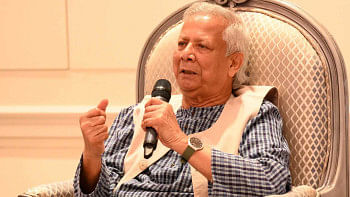Use of similar names by companies

SECTION 11(1) of the Companies Act, 1994 provides that a company would not be registered by a name identical with that by which a company in existence is already registered, or so nearly resembling the name that there is a likelihood of using the name to deceive, unless the company in existence is in the course of being dissolved and signifies its written consent to such use. Section 11(2) provides that if a company, through inadvertence or otherwise, is, without the consent referred to in sub-section (1), registered by a name identical with that by which a company in existence is previously registered, or so nearly resembling the name that there is likelihood of using the name to deceive, the first mentioned company would, on the direction of the Registrar, change its name within a period of one hundred and twenty days.
In Shafquat Haider & Others v Mr. Al-Amin and Another (1987) 39 DLR (AD) 103, respondent no.1, Mr. Al-Amin, was the chairperson and his mother, Jahanara Begum was a director, collectively holding 50 per cent of total shares of the registered company, Ciproco Computers Ltd. Mr. Shafquat Haider, the managing director, and his wife, Mrs. Haider, another director collectively held the rest of the 50 per cent shares of Ciproco Computers Ltd. This company was registered in June 1985. The main business of this company was to import, sell, and servicing of computers. When based on an application of the respondent no. 1 and his mother claiming a dead-lock, a winding up proceeding was pending; the appellants filed an application seeking an injunction against respondents to restrain them from carrying on a business in the name of Ciproco Computers and entice away the customers of the company.
The respondents contended that Ciproco Computers was in existence well before the Ciproco Computers Ltd's incorporation. The respondent no.1 showed that he had a trade mark registration in 1984 under the Trade Marks Act, 1940. The AD noted that respondent no.1 did not carry on the business of his partnership firm that is Ciproco Computers until the commencement of the winding up proceedings. (para 5) The AD also stressed on the fact that the trade license for the partnership firm, Ciproco Computers was obtained just fifteen days before the filing of the petition for winding up. Thereafter, he started to mislead company's customers to promote his personal business. Interestingly, the High Court Division (HCD) of the Supreme Court (SC) found that “there is a gulf of difference between the name 'Ciproco Computers' and 'Ciproco Computers Ltd.” (para 1)
Clearly, on the basis of the significant difference between the legal nature of a partnership and a company in our legal regime, the HCD's observation is legally sound. However, if we read Section 11 carefully, we would see that the intention to avoid confusion and deception by the use of identical or confusingly similar name is at its root. In this case, many of the customers who would deal with these two business entities, may not have taken care to note the significant legal difference between the names 'Ciproco Computers' and 'Ciproco Computers Ltd'. That said, clearly in legal terms, the HCD was acting within the letters of the law as Section 11 has not stipulated that an unincorporated business cannot use a name that is identical with or confusingly similar to the name of an existing company.
On appeal, the Appellate Division (AD) not only found a close similarity in names of the two entities but also an endeavour of the respondent no.1 to entice away the customers from the company to the private business. Accordingly, it issued an order for restraining the respondent from using the name 'Ciproco Computers' until the disposal of the winding up petition. Thus, following this decision, it is possible to argue that the statutory bar against using identical or similar names as imposed in Section 11 may not only apply to a company with reference to another company but may also extend to a company with reference to an unincorporated business entity, particularly when there is some sort of deception. The problem with this argument is that it may mean stretching the ratio of this case too far. In the facts of this case, there was solid evidence of deceptive conducts on the part of the respondents and also that they were associated with the appellant company and both of these considerations appear to have influenced the AD's conclusion.
In a future case, where persons connected with an unincorporated entity use names similar to that of a company with which they have no connection, technically there would be no breach of Section 11 of the Companies Act, 1994 and it remains to be seen what approach the court would take in such a case. In such a case, only an action for passing off seems to be a viable option for proceeding against the unincorporated business. However, given that goodwill is a prerequisite for a successful action for passing off, that option would seem to be a much harder route to take.
The writer is an Assistant Professor, School of Law, BRAC University.

 For all latest news, follow The Daily Star's Google News channel.
For all latest news, follow The Daily Star's Google News channel. 



Comments